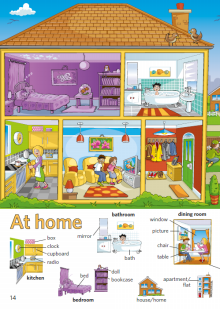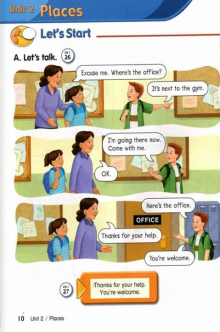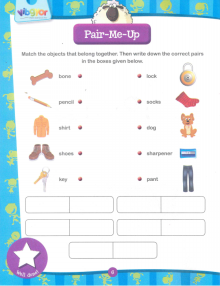当オンライン英会話スクール
DAVAO CAFE
 ブログをご覧の皆様、
ブログをご覧の皆様、Hello!How are you?




★お子様でも安心のダバオカフェ★
さて、今回は久々に「英語のニュースにチャレンジ!」です

今回のトピックは、日本でもスマホの普及によって特に若者を中心として拡大してきているこの問題です。
第一回目「Scientists Discover Secrets of Coffee」はコチラ
第二回目「Raw Chocolate May Be Healthier」はコチラ
第三回目「Obama Goes to UN With Islamic State, Ebola on Agenda」はコチラ
第四回目「Japan braces for very strong typhoon Vongfong」はコチラ
第五回目「Officials: Number of New Ebola Cases in W. Africa Declining」はコチラ
第六回目「Nishikori joins last 4 of ATP World Tour Finals」はコチラ
第七回目「NISHIKORI: 2014 WAS ONE OF MY 'BEST YEARS'」はコチラ
第八回目「Problems with selfie sticks in South Korea」はコチラ
第九回目「Tattooed Santa」はコチラ
第十回目「New Year's resolutions difficult to keep」はコチラ
第11回目「Pop Singers Pick Up」はコチラ
第12回目「Russian cat saves a baby」はコチラ
第13回目「Workaholic fathers 'leave orphans'」はコチラ
第14回目「Big robbery in London」はコチラ
第15回目「Earthquake in Nepal」はコチラ
第16回目「Is Secondhand Smoke Child Abuse?」はコチラ
第17回目「Everyday Grammar: Put Prepositions in Their Place」はコチラ
第18回目「Everyday Grammar: In, On, and At」はコチラ
第19回目「ニュースでよく使われる英単語の勉強」はコチラ
第20回目「On the Edge of Your Seat」はコチラ
第21回目「China ends one-child policy」はコチラ
第22回目「Twitter ends 140-character Direct Message limit」はコチラ
第23回目「Steve Harvey Would Be Welcome Back at Miss Universe Pageant」はコチラ
第24回目「Joke about rich brothers」はコチラ
-------------------------------------
お得な「家族シェア」スタートしました★

親子割引「家族みんなでダバオカフェ」コース新設!!
-------------------------------------
Social Media Is Keeping Young Adults Awake

 ←このアイコンをクリックするとこのニュースの音声再生ページへ飛びます
←このアイコンをクリックするとこのニュースの音声再生ページへ飛びます
 ←このアイコンをクリックするとこのニュースの音声がダウンロードできます(MP3)
←このアイコンをクリックするとこのニュースの音声がダウンロードできます(MP3)
From VOA Learning English, this is the Health & Lifestyle report.
A new study has found that social media could be affecting the sleep of young adults.
The study is a project of researchers at the University of Pittsburgh's School of Medicine.
They found that young people who often use social media are more likely to suffer from sleep disorders than those who use social media less.
The researchers say doctors should ask young adults about their use of social media when treating sleep issues.
“This is one of the first pieces of evidence that social media use really can impact your sleep,” said Jessica C. Levenson. She is a postdoctoral researcher in the university's Department of Psychiatry. She was the lead author of a report on the study.
The researchers set out to examine the connection between social media use and sleep among young adults. Levenson noted that these young adults are possibly the first “generation to grow up with social media.”
The researchers wanted to find out how often young people used social media sites like Facebook, Twitter, Snapshot, Credit and Tumbler. For the study, they gave questionnaires to nearly 1,800 adults, aged 19 to 32.
On average, members of the study group used social media sites one hour a day. They also "visited various social media accounts 30 times per week."
Thirty percent of the study's participants reported having serious problems with sleeping. Those people who used social media a lot were three times more likely to have a sleep disorder. And those who spent the most time on social media were two times as likely to suffer from sleep disturbances.
Frequent checking is big part of the problem
Levenson said the number of times a person visits social media is a better predictor of sleep problems than overall time spent on social media. If this is true, she adds, then practices that stop such behaviors may be most effective.
Researchers say social media can influence sleep patterns in a number of ways.
People can lose sleep by staying up too late looking at social media.
Sensitive issues argued about on social media can cause "emotional, cognitive or physiological” excitement.
Using an electronic device can interfere with a body's natural sleep rhythms because of the light coming from cell phones or computer screens.
The researchers note that in some cases, young adults who have a hard time sleeping may use social media to help them fall asleep.
"It also may be that both of these hypotheses are true," says Brian A. Primack. He is director of the Center for Research on Media, Technology and Health. He is also the study's senior author.
Primack says “difficulty sleeping may lead to increased use of social media, which may in turn lead to more sleeping problems. This cycle may be particularly problematic with social media. Many forms of social media involve interactive screen time that is stimulating and rewarding and, for those reasons, can keep you awake."
Researchers published their findings in the journal Preventative Medicine.
I'm Anna Matteo.
Words in This Story
author – n. a person who has written something, especially someone who has written a book or who writes many books
disturbance – n. something that stops you from working or sleeping
questionnaire – n. written questions that are given to people in order to collect facts or opinions about something
predictor – n. predicting on the basis of observation, experience, or scientific reason
hypotheses – n. an idea or theory that is not proven but that leads to further study or discussion
cycle – n. a set of events or actions that happen again and again in the same order
interactive – adj. involving the actions or input of a user
stimulating – adj. to make (a person) excited or interested in something
rewarding – adj. giving you a good feeling that you have done something valuable or important
participant – n. a person who is involved in an activity or event; a person who takes part in an activity or event
pattern – n. the repetition of something
(出典元:Voice Of America Learning English)

 ←このアイコンをクリックするとこのニュースの音声再生ページへ飛びます
←このアイコンをクリックするとこのニュースの音声再生ページへ飛びます ←このアイコンをクリックするとこのニュースの音声がダウンロードできます(MP3)
←このアイコンをクリックするとこのニュースの音声がダウンロードできます(MP3)From VOA Learning English, this is the Health & Lifestyle report.
A new study has found that social media could be affecting the sleep of young adults.
The study is a project of researchers at the University of Pittsburgh's School of Medicine.
They found that young people who often use social media are more likely to suffer from sleep disorders than those who use social media less.
The researchers say doctors should ask young adults about their use of social media when treating sleep issues.
“This is one of the first pieces of evidence that social media use really can impact your sleep,” said Jessica C. Levenson. She is a postdoctoral researcher in the university's Department of Psychiatry. She was the lead author of a report on the study.
The researchers set out to examine the connection between social media use and sleep among young adults. Levenson noted that these young adults are possibly the first “generation to grow up with social media.”
The researchers wanted to find out how often young people used social media sites like Facebook, Twitter, Snapshot, Credit and Tumbler. For the study, they gave questionnaires to nearly 1,800 adults, aged 19 to 32.
On average, members of the study group used social media sites one hour a day. They also "visited various social media accounts 30 times per week."
Thirty percent of the study's participants reported having serious problems with sleeping. Those people who used social media a lot were three times more likely to have a sleep disorder. And those who spent the most time on social media were two times as likely to suffer from sleep disturbances.
Frequent checking is big part of the problem
Levenson said the number of times a person visits social media is a better predictor of sleep problems than overall time spent on social media. If this is true, she adds, then practices that stop such behaviors may be most effective.
Researchers say social media can influence sleep patterns in a number of ways.
People can lose sleep by staying up too late looking at social media.
Sensitive issues argued about on social media can cause "emotional, cognitive or physiological” excitement.
Using an electronic device can interfere with a body's natural sleep rhythms because of the light coming from cell phones or computer screens.
The researchers note that in some cases, young adults who have a hard time sleeping may use social media to help them fall asleep.
"It also may be that both of these hypotheses are true," says Brian A. Primack. He is director of the Center for Research on Media, Technology and Health. He is also the study's senior author.
Primack says “difficulty sleeping may lead to increased use of social media, which may in turn lead to more sleeping problems. This cycle may be particularly problematic with social media. Many forms of social media involve interactive screen time that is stimulating and rewarding and, for those reasons, can keep you awake."
Researchers published their findings in the journal Preventative Medicine.
I'm Anna Matteo.
Words in This Story
author – n. a person who has written something, especially someone who has written a book or who writes many books
disturbance – n. something that stops you from working or sleeping
questionnaire – n. written questions that are given to people in order to collect facts or opinions about something
predictor – n. predicting on the basis of observation, experience, or scientific reason
hypotheses – n. an idea or theory that is not proven but that leads to further study or discussion
cycle – n. a set of events or actions that happen again and again in the same order
interactive – adj. involving the actions or input of a user
stimulating – adj. to make (a person) excited or interested in something
rewarding – adj. giving you a good feeling that you have done something valuable or important
participant – n. a person who is involved in an activity or event; a person who takes part in an activity or event
pattern – n. the repetition of something
(出典元:Voice Of America Learning English)
 の
の無料トライアルを受講してみて下さい!!
★お子様も安心・ご家族でもオトクなダバオカフェ★
↓ ↓ ↓

★オンライン英会話ダバオカフェ★
英語のフレーズの勉強も実施中!!
↓ ↓ ↓ ↓ ↓

DavaoCafeの公式Twitterページへ


